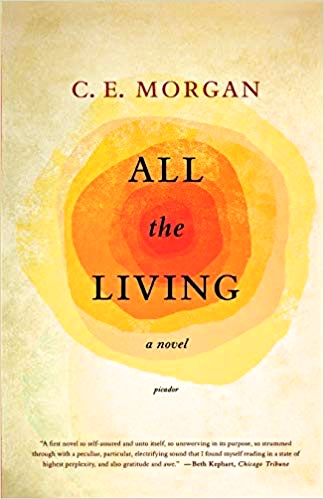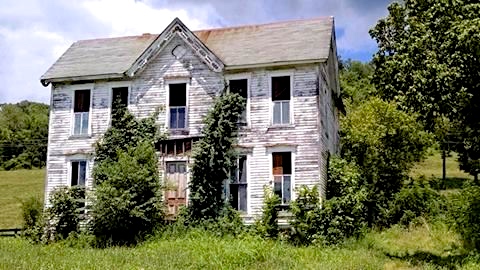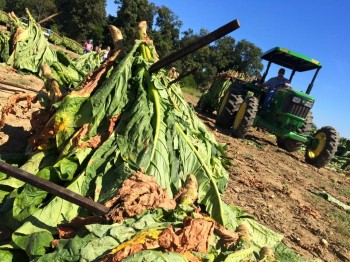“She felt guilt for her meanness, she didn’t know what was wrong with her and thought, in her tangled mind, she wasn’t made like other women. There was some softness in her, but it was so deep in a kind of acquired bitter that it took another bitter to divine it, like an auger cuts through solid rock to force the seam.”
 In this assured and evocative debut novel set in rural Kentucky, author C. E. Morgan comes closer to conveying the essence of life, as she sees it, than do most other novelists with generations more experience. Writing about an area in which she lived, Morgan recreates the bare bones lives of subsistence farmers who are irrevocably tied to the land, a land which is sometimes fickle in its ability to sustain those who so lovingly tend it. Interminably long days and aching physical labor are not always rewarded here, and despair is often the prevailing mood of whole communities when droughts or floods play havoc with man’s efforts. Yet each spring offers new opportunities and hope as the resilient farmers renew their back-breaking connection to the land once again.
In this assured and evocative debut novel set in rural Kentucky, author C. E. Morgan comes closer to conveying the essence of life, as she sees it, than do most other novelists with generations more experience. Writing about an area in which she lived, Morgan recreates the bare bones lives of subsistence farmers who are irrevocably tied to the land, a land which is sometimes fickle in its ability to sustain those who so lovingly tend it. Interminably long days and aching physical labor are not always rewarded here, and despair is often the prevailing mood of whole communities when droughts or floods play havoc with man’s efforts. Yet each spring offers new opportunities and hope as the resilient farmers renew their back-breaking connection to the land once again.
 Orren Fenton is just out of college when his mother and brother are killed in an accident, leaving him the sole survivor of the family and the inheritor of the family’s Kentucky tobacco farm. Orren has had no real experience running a farm, but he has been working at a school farm, and his connection to the family’s land is strong. At the school he has been sharing a passionate relationship with Aloma, a young woman who was orphaned at the age of three and who has been earning a living as a pianist at the mission school where she was educated. Seeing this as her chance to begin a whole new life—a real life of her own—Aloma accepts, not really knowing what to expect, though she believes herself “in love” with Orren.
Orren Fenton is just out of college when his mother and brother are killed in an accident, leaving him the sole survivor of the family and the inheritor of the family’s Kentucky tobacco farm. Orren has had no real experience running a farm, but he has been working at a school farm, and his connection to the family’s land is strong. At the school he has been sharing a passionate relationship with Aloma, a young woman who was orphaned at the age of three and who has been earning a living as a pianist at the mission school where she was educated. Seeing this as her chance to begin a whole new life—a real life of her own—Aloma accepts, not really knowing what to expect, though she believes herself “in love” with Orren.

Old Kentucky farmhouse, perhaps similar to the one that Orren and Aloma moved into which had belonged to his grandparents.
Aloma and Orren are very young, and the work of running the farm is brutal. Orren is determined to make everything work, but Aloma is inexperienced, and Orren is unable to afford the time to teach her what she needs to know. He cannot afford mistakes with the crops or the animals, so he does all the work himself. Aloma, feeling left out, spends her days trying to make the long-closed home of Orren’s grandparents habitable—scraping the floors, washing the walls, and cleaning out the detritus from years of abandonment. Before long, these two very inexperienced young people are fighting with each other. Aloma feels abandoned all day, every day. Orren feels that she does not appreciate all he is doing to save the farm and the land. She, inexperienced in cooking and other household chores, feels that he does not appreciate all she is doing to make the house habitable. The fact that she has no place to practice the piano, her one big talent, frustrates her. Orren’s suggestion that she see if she can use the piano at a church in town leads to her meeting with a local preacher, Bell Johnson, a 36-year-old single man, who is attracted to her and who represents a different way of life.
Within this simple framework, Morgan explores universal themes–one’s dreams for the future vs. the brutal realities of the present, new life and the hopes it represents for the present vs. the death of loved ones and grief, the feeling that God watches over all vs. the sense that God is more interested in the land than in individuals, and the belief that self-knowledge comes from one’s relationships with the outside world vs. the understanding that self-knowledge grows from within. Morgan writes with the deeply religious sense that all life is somehow connected, seeing God as part of a continuum that begins with the land, the place where life begins. The three main characters here—Aloma, Orren, and Bell Johnson—are well developed, and they reveal their inner turmoil through their often unthinking actions. Morgan does not need to tell us how they feel: their responses to other people’s actions are so fully realized that the reader knows instinctively how the characters feel and can identify with them even while knowing that they are often naïve and selfish.
Morgan does not take the easy way out by tying up all the loose ends in the conclusion. She reconciles issues as well as Aloma and Orren might be expected to reconcile them, given their youth, but she leaves it up to them, and the reader, to decide if their relationship will be successful and whether they will find self-knowledge as they deal with the challenges of working the farm. Insightful, philosophical, and mature, this portrait of three characters trying to understand themselves and their roles in the world as they face the hardships of everyday life in rural Kentucky is an accomplished and moving novel which conveys both the love of the land and the difficulties of managing the challenges associated with it.
Photos. The author’s photo may be found on https://www.telegraph.co.uk
This old, empty farmhouse may be similar to the one which belonged to Orren’t grandparents and which Aloma spends so much time cleaning and restoring. https://www.pinterest.com/
One of Kentucky’s most famous and successful crops is of tobacco, as in this photo. https://www.kyfb.com/
Aloma looked forward to practicing her piano music in a local church, where she also found solace with the pastor. http://www.hurherald.com


